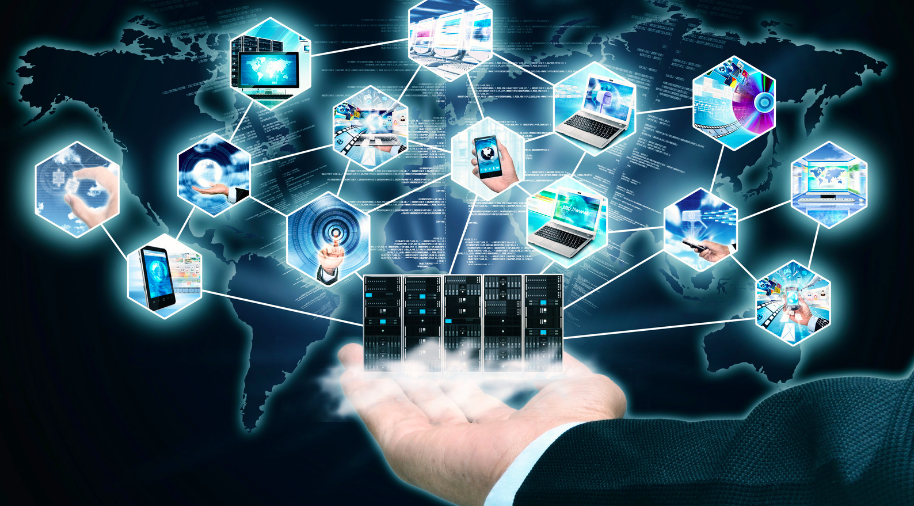Technology evolves rapidly, transforming our world in astonishing ways. New advancements continually emerge, shaping our future.
Every year, new technology brings exciting changes. From artificial intelligence to advanced robotics, these innovations impact our daily lives. Understanding these advancements helps us prepare for a tech-driven future. This blog explores the latest trends and developments, offering insights into their potential impact.
Whether you are tech-savvy or a curious learner, this journey through cutting-edge technology promises to be enlightening. Stay with us to discover how new technology is reshaping our world and what it means for you.
Also Read
- Publitio Lifetime Deal: Unlock Unlimited Media Hosting Today!
- Capcut Pro Pricing: Unlock Premium Features for Less
- Revolut Business Pricing: Unlock the Best Plans for Your Business
Introduction To New Technology
New technology is reshaping how we live and work. It is happening fast. Every day, new inventions emerge. They change our world in many ways. This section will explore these changes.
The Rise Of Innovation
Innovation is at its peak today. New gadgets and systems are created daily. They make our lives easier. From smartphones to smart homes, technology is everywhere. It improves communication and boosts productivity.
Let us look at some key areas of innovation:
- Artificial Intelligence (AI): AI is used in many fields. It helps in healthcare, finance, and customer service.
- Blockchain: This technology ensures secure transactions. It is popular in finance and cryptocurrencies.
- Internet of Things (IoT): Devices are connected through the internet. They communicate and automate tasks.
Impact On Modern Society
Technology impacts our society in many ways. It changes how we interact and work. It creates new jobs and industries. It also raises some concerns.
| Positive Impacts | Challenges |
|---|---|
| Better communication | Privacy issues |
| Increased productivity | Job displacement |
| Health advancements | Cybersecurity threats |
Overall, technology is a double-edged sword. It offers many benefits. But it also poses challenges. Society must adapt to these changes. Understanding and managing technology is crucial for progress.

Credit: www.paradigmmarketinganddesign.com
Artificial Intelligence
Artificial Intelligence (AI) is transforming our world. It is making machines smart. This technology mimics human intelligence. AI can learn, reason, and solve problems. It is being used in many fields. From healthcare to entertainment, AI is everywhere. It is changing how we live, work, and interact.
Ai In Everyday Life
AI is part of our daily lives. Smartphones use AI to recognize faces. Virtual assistants like Siri and Alexa use AI to answer questions. Social media platforms use AI to show personalized content. Online shopping sites use AI to recommend products. AI helps in navigation apps to find the best route. It is also used in streaming services to suggest movies and shows. AI in everyday life makes tasks easier and more efficient.
Ethical Considerations
AI raises ethical questions. One concern is privacy. AI collects and analyzes large amounts of data. This can lead to misuse of personal information. Another concern is job displacement. AI can perform tasks faster and cheaper than humans. This can lead to job loss in some sectors. There is also the issue of bias. AI systems can inherit biases from their training data. This can result in unfair decisions. Ethical considerations are important to ensure AI benefits everyone.
Blockchain Technology
Blockchain technology is transforming various industries. It provides a secure and transparent way to store data. This technology uses a decentralized system which ensures no single point of failure. Blockchain is more than just a platform for cryptocurrencies. It has many applications that can benefit different sectors.
Decentralized Systems
Blockchain operates on decentralized systems. This means no central authority controls the data. Instead, the data is spread across many computers. This makes the system secure and less prone to hacking. Each transaction is verified by multiple nodes before it is added to the blockchain. This ensures accuracy and trust.
Decentralization also promotes transparency. Every transaction is recorded and can be traced. This helps in reducing fraud and corruption. It is especially useful in sectors like finance, supply chain, and healthcare.
Applications Beyond Cryptocurrency
Blockchain technology is not limited to cryptocurrencies like Bitcoin. It has many other applications. Below are some examples:
- Supply Chain Management: Blockchain can track products from manufacture to delivery. This ensures quality and authenticity.
- Healthcare: Patient records can be securely stored and shared. This improves patient care and reduces errors.
- Voting Systems: Blockchain can make voting systems more transparent. It can prevent tampering and ensure fair elections.
In addition, blockchain can be used in real estate. It can simplify property transactions and reduce fraud. Smart contracts are another important application. These are self-executing contracts with the terms directly written into code. They ensure agreements are automatically enforced.
Blockchain technology is also useful in identity verification. It can provide secure digital identities. This can help in reducing identity theft and fraud.
Overall, blockchain has the potential to improve various systems. It provides security, transparency, and efficiency. Its applications are vast and can benefit many industries.
The Internet Of Things
The Internet of Things (IoT) connects devices to the internet. This allows them to communicate and share data. IoT spans various aspects of our lives. From smart homes to cities, IoT transforms how we live and work. It makes devices smarter, increasing convenience and efficiency. This technology is rapidly growing, impacting several industries.
Connected Devices
Connected devices are part of the IoT ecosystem. These devices communicate with each other via the internet. Examples include smartwatches, fitness trackers, and smart appliances. They collect and share data to improve user experience. This data helps optimize performance and offer personalized services.
Smart Homes And Cities
Smart homes use IoT to enhance convenience and security. Devices like smart thermostats, lights, and locks connect to your smartphone. You can control them remotely, saving energy and improving safety.
Smart cities use IoT to improve urban living. They optimize traffic flow, reduce energy consumption, and monitor air quality. Sensors collect data, helping authorities make informed decisions. This results in better public services and a higher quality of life.
5g Connectivity
5G connectivity is the latest advancement in mobile technology. It promises faster internet speeds and improved reliability. This technology is set to change how we use our devices. From streaming videos to online gaming, everything will be quicker and smoother.
Faster Internet Speeds
5G connectivity offers much faster internet speeds. Downloads and uploads will be almost instant. Streaming high-definition videos will be seamless. Online gaming will have minimal lag. These improvements will enhance daily online activities. Browsing the web will be quicker and more efficient.
Implications For Businesses
5G connectivity will greatly benefit businesses. It will enable faster communication and data transfer. This means more efficient operations and better customer service. Video conferences will be clearer and more reliable. Remote work will become even more practical.
5G will also support the use of smart devices in the workplace. This includes everything from smart thermostats to automated machinery. Businesses can operate more smoothly and save money. They can use data analytics more effectively. This will help them make better decisions.
Augmented And Virtual Reality
Augmented Reality (AR) and Virtual Reality (VR) are changing how we experience the digital world. AR adds digital elements to our real world using a device. VR creates a completely immersive digital environment. Both technologies have many uses and are growing fast.
Immersive Experiences
AR and VR offer immersive experiences. AR can add digital images to the real world. Imagine seeing virtual furniture in your living room before buying it. VR can take you to a different place without leaving your room. You can explore a new city or even a different planet.
These experiences are not just for fun. They can help in many areas like gaming, tourism, and shopping. The sense of immersion makes everything feel more real. This can lead to more engaging and memorable experiences.
Potential In Education And Training
AR and VR have great potential in education. They can make learning more interactive. Students can explore historical sites or dissect virtual frogs. This makes learning more engaging and fun. Difficult concepts become easier to understand.
Training can also benefit. Pilots can practice flying in a safe environment. Surgeons can perform virtual surgeries before the real thing. This helps in gaining skills without any risk. Companies can train employees on complex tasks using VR simulations.
Biotechnology Advancements
Biotechnology is changing the world. It combines biology with technology. This field has grown rapidly. Scientists and researchers are making new discoveries. These advancements impact healthcare, agriculture, and the environment.
Healthcare Innovations
Biotechnology has brought many healthcare innovations. New treatments for diseases are being developed. Personalized medicine is one example. It tailors treatments to individuals. This leads to better outcomes.
Another innovation is gene therapy. It aims to correct genetic disorders. Scientists insert healthy genes into patients. This can cure diseases at their source. Vaccines are also improving. Biotech companies create more effective vaccines. These vaccines protect against emerging threats.
Ethical And Social Impacts
Biotechnology raises ethical questions. Gene editing is controversial. Changing DNA can have unknown effects. There are concerns about designer babies. People worry about social inequality. Only the rich might afford these technologies.
There are also privacy concerns. Personal genetic information is sensitive. It needs protection. Ethical guidelines and regulations are important. They ensure responsible use of biotechnology.

Credit: apacbusinesstimes.com
Sustainable Technology
In today’s fast-paced world, sustainable technology is crucial. It’s not just about innovation. It’s about creating a better future. Sustainable technology aims to meet our needs without harming the planet.
Green Energy Solutions
One of the most important aspects of sustainable technology is green energy solutions. These solutions focus on using renewable energy sources. This helps reduce our reliance on fossil fuels. Some common green energy sources include:
- Solar Power
- Wind Power
- Hydropower
- Geothermal Energy
Solar power uses sunlight to generate electricity. It’s a clean and abundant source. Wind power harnesses the energy of the wind. Wind turbines convert kinetic energy into electricity. Hydropower uses the energy of moving water. It’s one of the oldest renewable energy sources. Geothermal energy taps into the Earth’s heat. It’s a constant and reliable source of power.
Reducing Environmental Footprint
Another goal of sustainable technology is reducing the environmental footprint. This involves minimizing waste and pollution. It also means using resources more efficiently. Here are some ways to reduce environmental impact:
- Adopting energy-efficient technologies
- Using biodegradable materials
- Implementing recycling programs
- Reducing water consumption
Energy-efficient technologies use less power. This helps lower greenhouse gas emissions. Biodegradable materials break down naturally. They don’t harm the environment. Recycling programs reduce waste. They keep materials out of landfills. Reducing water consumption helps conserve this vital resource.
Sustainable technology is essential for a healthy planet. By embracing green energy solutions and reducing our environmental footprint, we can create a sustainable future.
Future Predictions
The world of technology is ever-evolving. New advancements shape our future. Predicting these trends helps us prepare for what lies ahead. Let’s delve into some future predictions for new technology.
Emerging Trends
Artificial intelligence continues to grow. AI systems become more advanced and integrated. They enhance many aspects of life, from healthcare to education.
Another trend is the Internet of Things (IoT). More devices connect to the internet. This connectivity leads to smarter homes and cities.
Quantum computing is on the horizon. It promises faster data processing. This will revolutionize various industries.
Challenges And Opportunities
With new technology come challenges. Cybersecurity threats are a major concern. Protecting data becomes more crucial than ever.
There are also opportunities. New tech can improve lives. It offers solutions to global issues. For example, AI can help in disaster management.
Education systems need to adapt. They must prepare students for tech-driven jobs. This means updating curriculums and teaching methods.

Credit: www.varsitytech.com
For more information about visit now.
Frequently Asked Questions
What Is The Latest Technology Trend?
The latest technology trend includes advancements in artificial intelligence, blockchain, and quantum computing. These technologies are transforming industries and creating new opportunities.
How Does Ai Impact Daily Life?
AI impacts daily life through smart assistants, personalized recommendations, and automation. It improves efficiency and enhances user experiences in various fields.
What Are The Benefits Of Blockchain?
Blockchain offers benefits like enhanced security, transparency, and decentralization. It is used in finance, supply chain, and healthcare for secure transactions.
Why Is Quantum Computing Important?
Quantum computing is important because it can solve complex problems faster than classical computers. It has potential applications in cryptography, material science, and drug discovery.
Conclusion
Embracing new technology can transform everyday life. It makes tasks easier and faster. Staying updated helps in personal and professional growth. Learning about new tools keeps you ahead. Exploring these advancements can be exciting. Adapt to changes and stay curious.
Technology continues to evolve. Stay informed and enjoy the benefits it brings.








